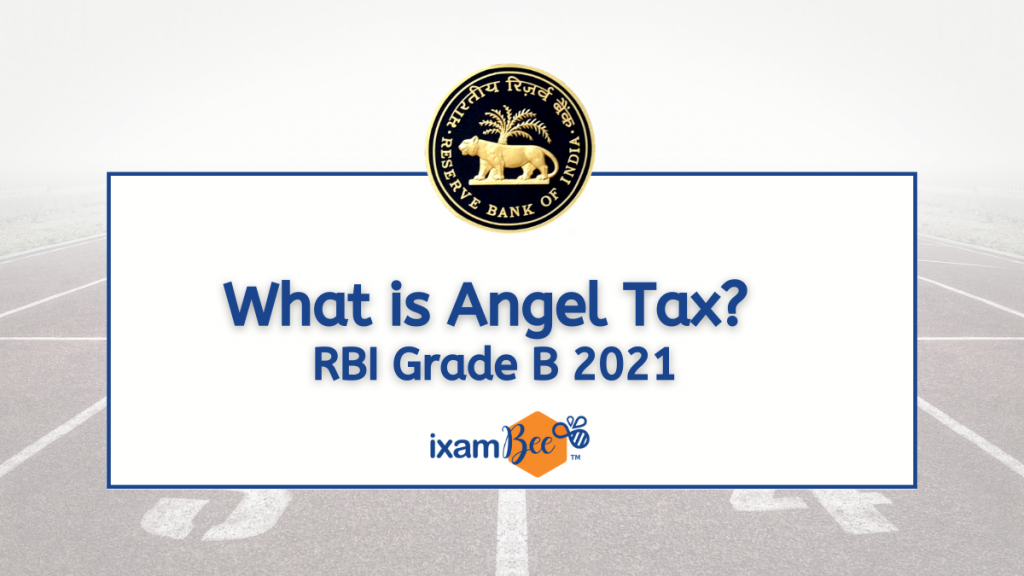In good news for the start-ups, the Income Tax Department has given an exemption to start-ups from angel tax even on earlier assessment orders, subject to certain riders.
So what is Angle tax and what was the row all about? Let’s understand
Meaning
The angel tax is an income tax payable on the capital raised by an unlisted firm through the issue of shares over and above their fair market value. The excess realisation (i.e. over and above the fair market value) in the capital raised is treated as income and taxed.
For example, if an unlisted company raised Rs.10 crore and the fair market value should be Rs.8 crore, the excess Rs.2 crore is treated as income for the unlisted company and therefore liable for taxation. This tax on Rs.2 crore is termed as Angel tax as this capital is usually invested by Angel investor in start-up companies.
Angel tax is applicable only in case the investor is a resident Indian. This means, any investment made by a foreign angel investor or by a VC fund will not be subject to angel tax.
Scope for Angel Tax
In order to promote entrepreneurship and start-ups, the government widened the scope of exemption from angel tax as follows:
| Earlier | New | |
| Definition of start-ups | An entity up to 7 years from date of incorporation | · An entity up to 10 years from date of incorporation |
| Exemption from Angel Tax | Unlisted start-ups having a funding cap up to Rs.10 crore | · Unlisted start-ups having a funding cap up to Rs.25 crore
· If shares are issued by eligible start-ups to listed firms having a net worth above Rs.100 crore or an annual turnover of or above Rs.250 crore |
Recent Contention
These new measures provided protection from future income tax notices, but the clarity on the fate of start-ups that had already come under the department’s radar because of the earlier provisions was missing. The Central Board of Direct Taxes (CBDT) said that those start-ups which had already received tax demand notices may be granted relief at the appeals stage.
The result of contention
- Court has extended the relief to start-ups that have been served with notices by the income-tax department under the angel tax provision,
- CBDT department would ‘summarily accept’ contention of start-ups recognised by the Department for Promotion of Industry and Internal Trade (DPIIT), if the notices pertained only to the angel tax section
- Start-ups eligible for relief
- Start-ups have to register with DPIIT
- And are not investing in specified segments that are usually suspected to be used for money laundering unless these investments are made “in the ordinary course of business”.
For instance, these start-ups can’t invest in realty; loans and advances; shares and securities; a motor vehicle, aircraft, yacht or any other mode of transport, the actual cost of which exceeds Rs.10 lakh and jewellery, etc.
However, if a start-up’s usual business model involves investment in jewellery (jewellery start-ups, for example), it can invest in it.
- Other Start-Ups
The assessing officer (AO) will conduct inquiries and verification into other issues only after obtaining approval of the supervisory officer for:
- DPIIT-recognised start-ups which have received notices related to multiple issues including the angel tax
- Start-ups not recognised by DPIIT and are concerned with multiple sections of the law including angel tax
To learn more such topics, stay tuned to our RBI Grade B blogs section.
Many more such topics with crisp content have been provided in our RBI Grade B 2019 online course as to make you understand the concepts clearly so that it helps you in the RBI Grade B interview round as well. This online course has been formulated by our esteemed faculty, Mr. Chandraprakash Joshi (ex-RBI GR B, MBA-Finance, PhD), Ms. Arunima Sinha (Coach for Banking exams for 6 years, Ex-Manager SIDBI, Ex-Bank PO), Ms. Prachi Agarwal (MBA Finance with over a decade experience) and Ms. Veena.M (B.Sc. Agri, MBA, Content Expert for General Awareness).
Click here to get FREE demo of RBI Grade B online course
About the Author Prachi Agarwal:
Prachi Agarwal is an MBA (Finance) from BIMTECH, Noida and B. Com (Hons) from Hansraj College, Delhi University. She has previously worked with CARE Ratings. At ixamBee, she is faculty for Financial and Management and Securities Market Awareness. Her expertise topics are Ratio analysis, risk management, bond valuation, etc. She is the student’s favorite faculty for her easy to understand approach while teaching in Live Classes.
Get Free Online Test Series, Daily GK Update, PIB Current Affairs, Banking Awareness as well as latest updates for Bank PO, Bank Clerk, SSC, RBI, NABARD and Other Government Jobs. online займ на картучастный займ онлайн на картузайм на киви без банковской карты
